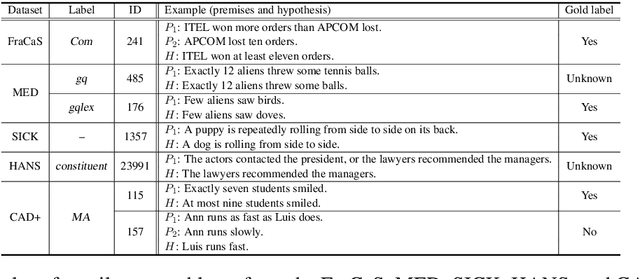Combining Event Semantics and Degree Semantics for Natural Language Inference
Paper and Code
Nov 02, 2020



In formal semantics, there are two well-developed semantic frameworks: event semantics, which treats verbs and adverbial modifiers using the notion of event, and degree semantics, which analyzes adjectives and comparatives using the notion of degree. However, it is not obvious whether these frameworks can be combined to handle cases in which the phenomena in question are interacting with each other. Here, we study this issue by focusing on natural language inference (NLI). We implement a logic-based NLI system that combines event semantics and degree semantics and their interaction with lexical knowledge. We evaluate the system on various NLI datasets containing linguistically challenging problems. The results show that the system achieves high accuracies on these datasets in comparison with previous logic-based systems and deep-learning-based systems. This suggests that the two semantic frameworks can be combined consistently to handle various combinations of linguistic phenomena without compromising the advantage of either framework.
 Add to Chrome
Add to Chrome Add to Firefox
Add to Firefox Add to Edge
Add to Edge